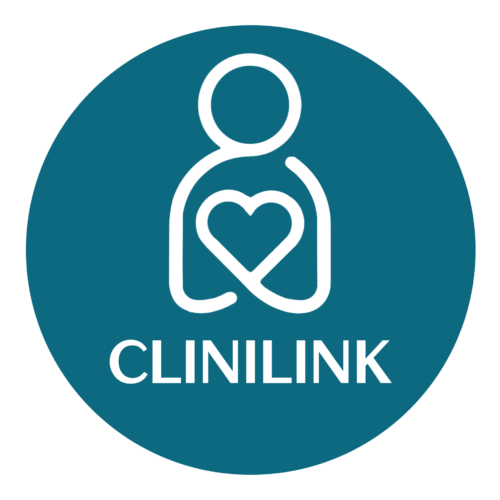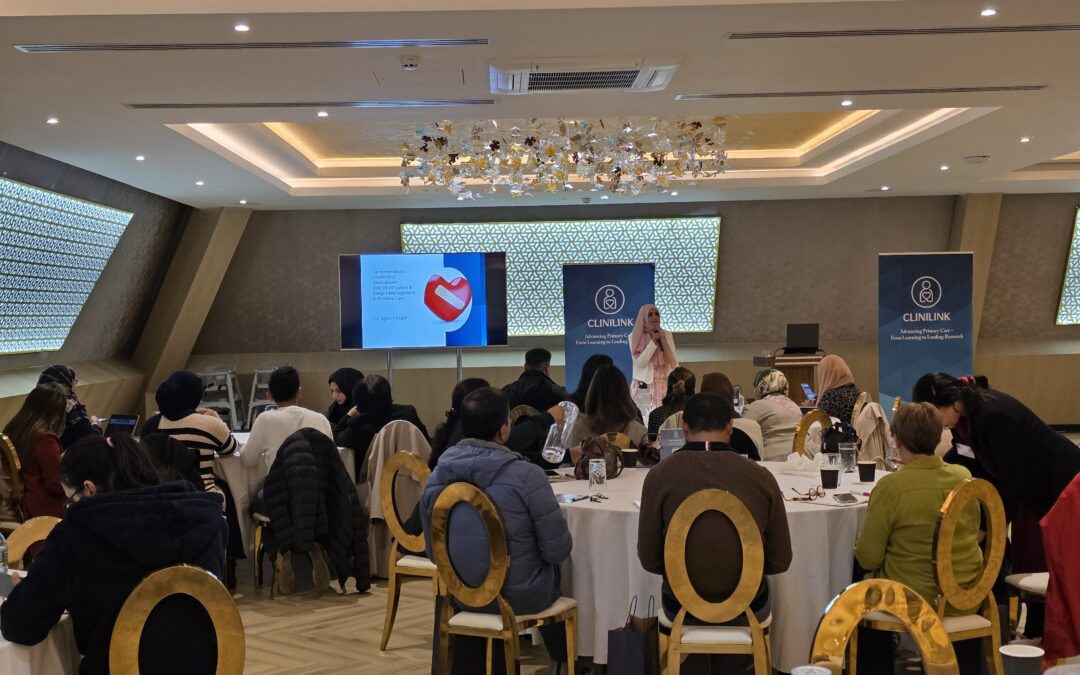You know menopause can feel like a complex puzzle with missing pieces. On 27th September, over 100 delegates gathered to uncover valuable insights at our Menopause event with Dr Manju Navani and Dr Almas Agha. The focus was clear: equip you with a menopause toolkit to navigate CVD, HRT, and testosterone therapy effectively. Positive pharma feedback confirmed the impact. Ready to enhance your patient care approach? Let’s explore the highlights and ensure you’re prepared for every scenario.
Event Overview
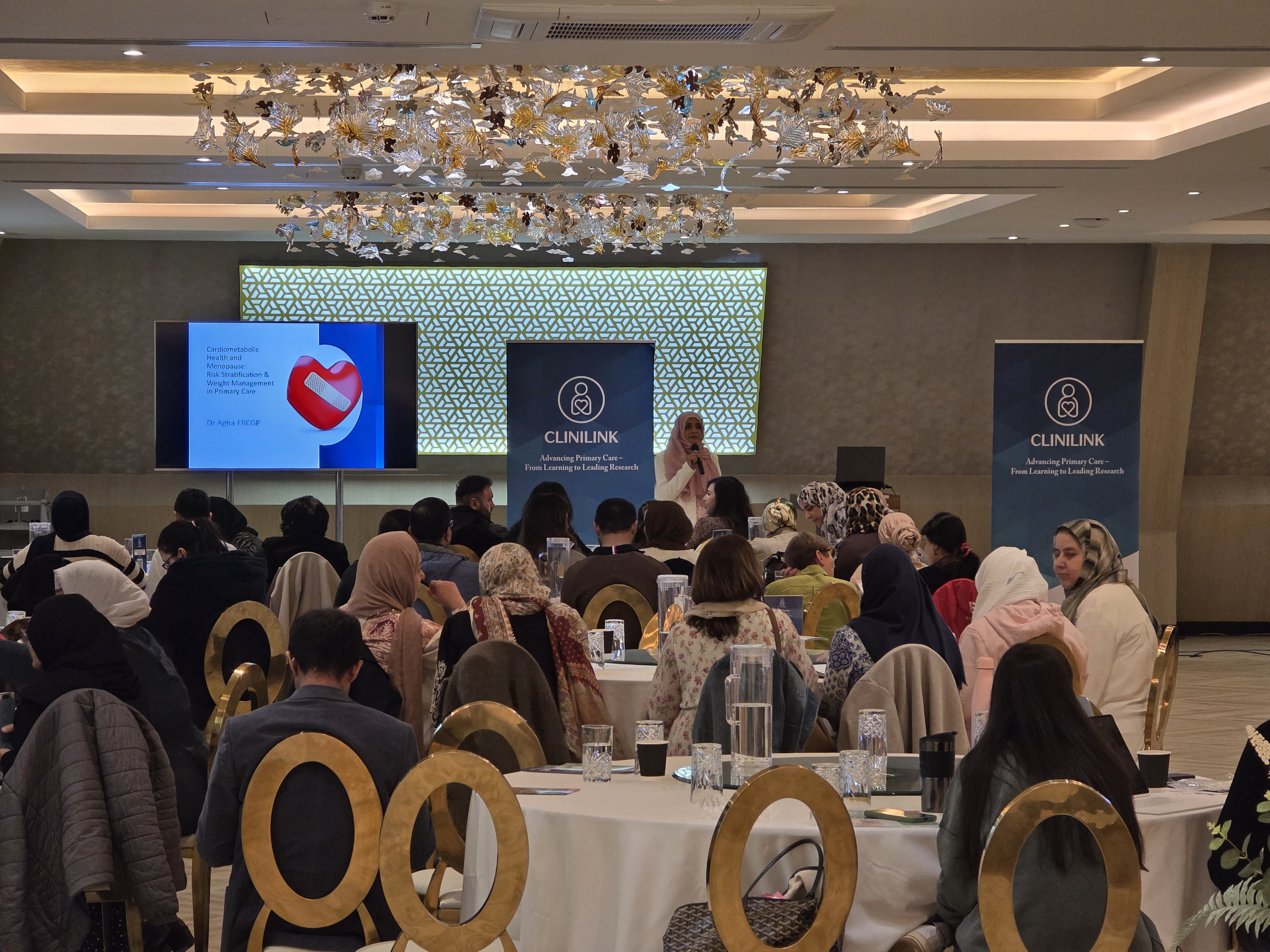
Our recent menopause event brought together healthcare professionals to share knowledge and build a supportive community. Let’s look at the key aspects of this gathering.
Welcoming Our Delegates
The event kicked off with a warm welcome to over 100 delegates, setting the stage for a day of learning and collaboration. Our aim was to create an environment where healthcare professionals could freely exchange ideas and experiences.
We started with an icebreaker activity, encouraging delegates to share their expectations for the day. This helped foster a sense of community and openness among attendees.
The agenda was then presented, outlining the various sessions and speakers. We emphasised the importance of active participation and networking throughout the event.
Introduction to Menopause
The session began with a comprehensive overview of menopause, laying the groundwork for the day’s discussions. We explored the physiological changes that occur during this phase of life.
Key topics included:
-
Hormonal fluctuations and their effects on the body
-
Common symptoms and their impact on daily life
-
The importance of individualised care in menopause management
We also addressed common misconceptions about menopause, providing evidence-based information to help delegates better understand and support their patients.
Highlights from Expert Speakers
Dr Manju Navani and Dr Almas Agha, our esteemed speakers, shared their expertise on various aspects of menopause management. Their presentations were filled with practical insights and the latest research findings.
Dr Navani focused on the psychological aspects of menopause, discussing strategies to support mental health during this transition. She emphasised the importance of a holistic approach to care.
Dr Agha delved into the physical manifestations of menopause, providing guidance on symptom management and treatment options. Her presentation included case studies that illustrated the complexity of menopause care.
Both speakers engaged in a Q&A session, addressing specific concerns and scenarios raised by the delegates. This interactive element was highly valued by attendees.
Menopause Toolkit Insights
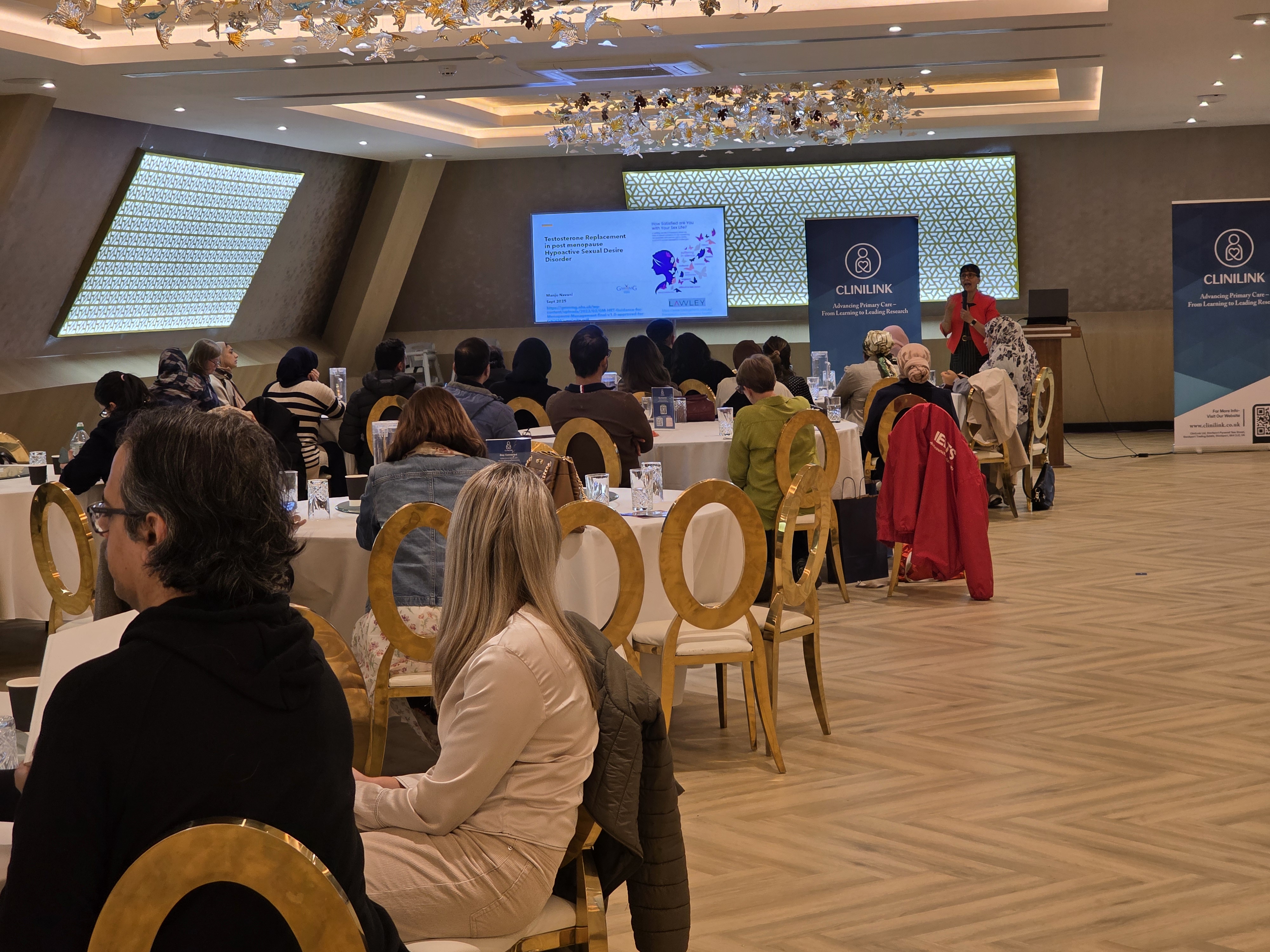
The menopause toolkit section of our event provided practical resources for healthcare professionals. We focused on equipping attendees with effective management strategies and avoiding common pitfalls.
Tools for Effective Management
Our experts introduced a range of tools designed to support healthcare professionals in managing menopause symptoms effectively. These tools aim to improve patient care and outcomes.
The menopause symptom tracker was highlighted as a key resource. This tool allows patients to record their symptoms over time, providing valuable data for healthcare providers to tailor treatment plans.
We also discussed the importance of lifestyle interventions. Nutrition guides and exercise recommendations were presented as essential components of the menopause toolkit.
Cognitive behavioural therapy (CBT) techniques were introduced as a non-pharmacological approach to managing psychological symptoms. Attendees learned how to incorporate these techniques into their practice.
Common Pitfalls to Avoid
The session on common pitfalls in menopause management was particularly insightful. It highlighted areas where healthcare professionals often face challenges and provided strategies to overcome them.
One key pitfall discussed was the underdiagnosis of menopause symptoms. We explored ways to improve recognition of subtle signs and symptoms that might be overlooked.
Another important topic was the overreliance on hormone replacement therapy (HRT) without considering alternative or complementary treatments. The importance of a balanced approach was emphasised.
We also addressed the pitfall of neglecting the psychosocial aspects of menopause. Strategies for providing holistic care that addresses both physical and emotional needs were shared.
Practical Application in Clinics
This section focused on translating theoretical knowledge into practical skills for use in clinical settings. Attendees learned how to apply the menopause toolkit effectively in their daily practice.
We introduced a step-by-step approach to menopause consultations:
- Initial assessment and symptom evaluation
- Discussion of treatment options, including risks and benefits
- Collaborative decision-making with patients
- Follow-up and adjustment of treatment plans
- Case studies were used to illustrate how to apply these steps in real-world scenarios. Attendees had the opportunity to practice their skills through role-playing exercises.
The importance of ongoing education and staying updated with the latest research was emphasised. Resources for continued learning were shared with the delegates.
Cardiovascular Disease and Menopause
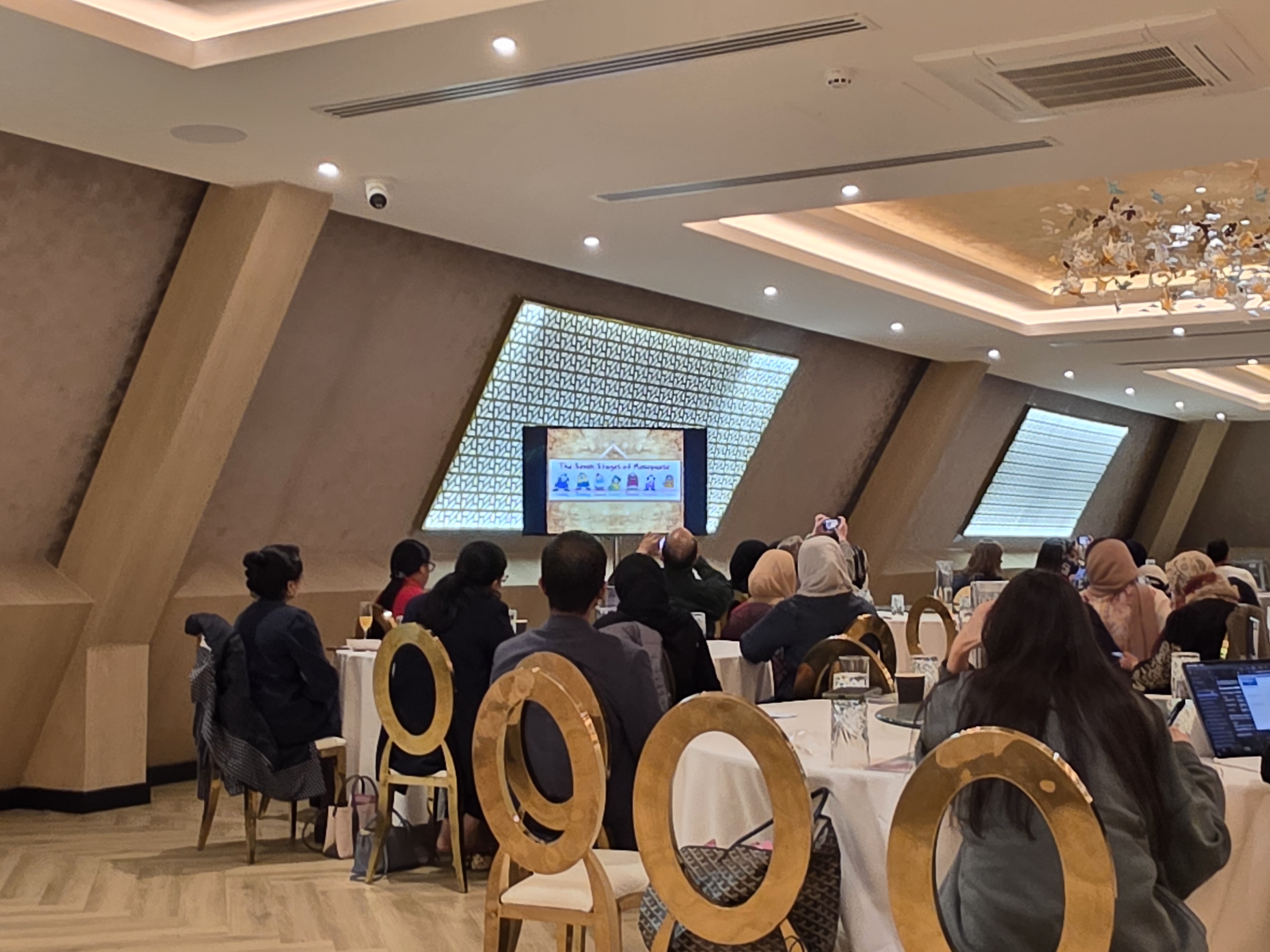
The link between cardiovascular disease (CVD) and menopause was a key focus of our event. We explored the increased risks and the role of hormone replacement therapy in managing these risks.
Understanding CVD Risks
This session delved into the increased cardiovascular risks associated with menopause. We examined the physiological changes that contribute to this heightened risk profile.
Key points included:
-
The impact of oestrogen decline on cardiovascular health
-
Changes in lipid profiles and their implications
-
The role of inflammation in CVD risk during menopause
We also discussed the importance of early risk assessment and intervention. Attendees learned about various risk assessment tools and how to interpret their results.
The session emphasised the need for a proactive approach to cardiovascular health in menopausal women. Strategies for patient education and lifestyle modifications were shared.
Role of Hormone Replacement Therapy
Hormone replacement therapy (HRT) and its impact on cardiovascular health was a topic of significant interest. We explored the current evidence and guidelines for HRT use in menopausal women.
The potential cardiovascular benefits of HRT were discussed, including:
-
Improved lipid profiles
-
Reduced insulin resistance
-
Potential reduction in atherosclerosis progression
However, we also addressed the controversies and potential risks associated with HRT. The importance of individualised risk-benefit assessment was emphasised.
The session included a review of different HRT formulations and their specific impacts on cardiovascular health. Attendees gained insights into choosing the most appropriate HRT options for their patients.
Integrating HRT in Patient Care
This section focused on practical strategies for incorporating HRT into comprehensive patient care plans. We discussed how to balance cardiovascular risk management with other aspects of menopause care.
Key topics included:
-
Conducting thorough pre-HRT assessments
-
Monitoring cardiovascular health during HRT treatment
-
Adjusting HRT regimens based on individual patient responses
We also addressed the importance of patient education and informed consent. Strategies for discussing the benefits and risks of HRT with patients were shared.
The session concluded with case studies illustrating successful integration of HRT in patient care plans. These real-world examples helped solidify the concepts discussed.
Testosterone Therapy in Focus
Testosterone therapy emerged as a significant topic of interest during our event. We explored its potential benefits, considerations for use, and strategies for effective hormone management.
Benefits and Considerations
This session provided a comprehensive overview of testosterone therapy in menopausal women. We examined the potential benefits and the considerations that healthcare professionals should keep in mind.
Potential benefits of testosterone therapy discussed included:
-
Improved libido and sexual function
-
Increased energy levels and mood
-
Enhanced cognitive function
However, we also addressed the potential risks and side effects, such as:
-
Acne and hair growth
-
Changes in lipid profiles
-
Potential impact on cardiovascular health
The importance of careful patient selection and monitoring was emphasised. We discussed the criteria for identifying suitable candidates for testosterone therapy.
Strategies for Hormone Management
This section focused on practical strategies for managing testosterone therapy in menopausal women. We explored different treatment protocols and monitoring approaches.
Key topics included:
-
Determining appropriate dosages and formulations
-
Monitoring testosterone levels and adjusting treatment
-
Managing potential side effects
We also discussed the importance of a holistic approach to hormone management. The integration of testosterone therapy with other menopause treatments was explored.
The session included case studies illustrating successful hormone management strategies. These real-world examples provided valuable insights for attendees.
Building a Supportive Community
Our event wasn’t just about sharing knowledge; it was also about fostering connections and supporting professional growth. This section explores the community-building aspects of our gathering.
Networking Opportunities
The event provided numerous opportunities for delegates to connect and build professional relationships. We structured the day to encourage meaningful interactions among attendees.
Networking sessions were interspersed throughout the event, allowing delegates to:
-
Share experiences and best practices
-
Discuss challenging cases with peers
-
Form potential collaborations for future projects
We also organised a ‘speed networking’ session, where attendees had brief, focused conversations with multiple colleagues. This format proved particularly effective in helping delegates expand their professional circles.
The event concluded with a social gathering, providing a relaxed environment for further networking and relationship building.
Promoting Professional Development
Professional development was a key focus of our event. We provided resources and guidance to support the ongoing growth of healthcare professionals in menopause management.
Key professional development topics included:
-
Continuing education opportunities in menopause care
-
Resources for staying updated with the latest research
-
Mentorship programmes for early-career professionals
We also discussed the importance of self-reflection and continuous improvement in clinical practice. Tools for self-assessment and peer review were shared with attendees.
The session included a panel discussion with experienced professionals sharing their career development journeys. This provided valuable insights and inspiration for attendees at all career stages.
Encouraging Career Growth in Healthcare
The final section of our event focused on supporting career growth in the field of menopause management. We explored various pathways for specialisation and advancement.
Topics discussed included:
-
Specialisation options in menopause care
-
Leadership opportunities in healthcare organisations
-
Research and academic career paths
We also addressed the importance of work-life balance and personal wellbeing in sustaining a long-term career in healthcare. Strategies for managing stress and preventing burnout were shared.
The session concluded with a motivational talk on the impact of menopause care on women’s health. This reinforced the importance of the work done by healthcare professionals in this field and inspired attendees to continue their professional growth journey.
